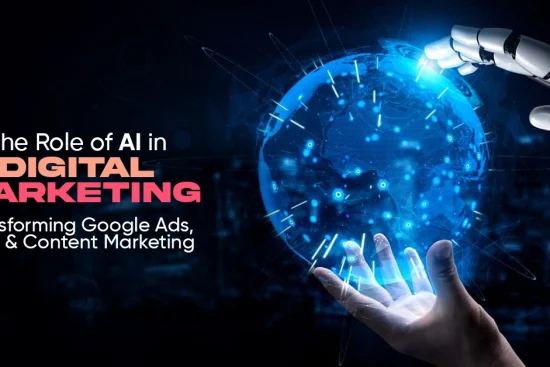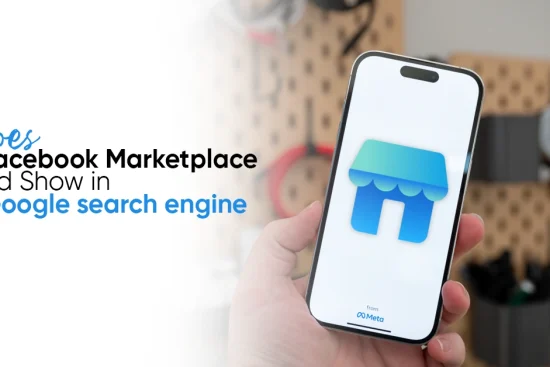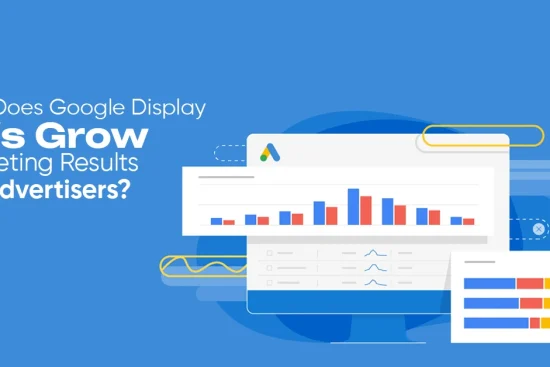
In digital marketing, the frequently posed query is set with what elements are foundational for SEO with AI. The straightforward response hinges on excellent content structure, pertinent keywords, user experience, quality backlinks, technical SEO, and SEO audits in a continuous loop. When artificial intelligence is applied to these basic elements of SEO, it assures an elevation of search engine ranking along with audience targeting and competitor overpowering. This article will take the above basics into detail and explain how AI enhances each to make SEO more innovative and effective.
1. Keyword Research and Optimization
SEO has always been the bread and butter of keywords. Today, with AI tools, search trends, user behaviour, and competitor strategies can be analysed to recommend the most effective keywords for your content. Thus, data-driven keyword research becomes faster and more accurate. Long-tail keywords, question-based searches, and voice search queries are the new buzzwords regarding AI-driven technology, which allows platforms like SEMrush, Ahrefs, and Google keyword planner to identify the most relevant keywords that are making the market.
However, the most essential factors while choosing your keywords are relevance, search volume, and competition. Besides offering keyword suggestions to your audience using their AI models, these same tools can also forecast potential keyword performances and make necessary vocabulary, word density, and variation recommendations to the existing content to make it more readable and friendly and get a higher rank in the search engines.

2. Quality Content Creation
What elements are foundational for SEO with AI? seo with no content is just like metal without a soul. AI helps you manage the creation of high-quality, pertinent, and engaging content in more effective writing tools, such as ChatGPT, Jasper, and Copy.ai, which are responsible for sifting out thoughts, creating outlines and generating whole articles using targeted keywords and user intent, apart from instructing writers on how to use the tools efficiently.
For content to be SEO-friendly, it needs to be original, well-structured, and meaningful to the reader. AI can tell us the current trending topics, the best-performing content formats, and how the articles should be structured for easy reading and engagement. Besides, AI can spot duplicate content and correct grammatical mistakes. Therefore, you should provide trust in your website’s integrity.
3. User Experience (UX) Optimization
Google and other search engines use website quality as a ranking factor. By leveraging AI, one can figure out the scenario behaviour at a specific site, for instance, the time a user remains on a page, bounce rates, and click-through rates, and then utilise the received information for the quickest wins. Solution-oriented AI guides on the user experience involve design changes, page load speed, and mobile responsiveness updates that can affect website ranking.
Increased site traffic, better conversion rate, and higher search ranking are the three inextricable results of AI-driven design improvements, page load speed optimisation, and mobile compatibility. On the new-age web, your investment in design, user experience, and performance will be converted into a positive user experience and search ranking.
4. Technical SEO
The function of technical SEO is to make it possible for search engines to easily scan, index, and exhibit your website. Certainly, websites can be checked by AI-powered tools that spot problems such as dead links, copied content, slow-loading pages, and unoptimised images. It is these technical SEO problems that can be solved with the help of AI if the tools are used; for example, Screaming Frog, DeepCrawl, and Google Search Console are some of the platforms that are very capable of such detection and have been known to provide the best solutions using AI-based.
Some essential elements in technical SEO are the appropriate URL structure, safe HTTPS protocol, XML sitemaps, mobile-friendliness, and schema markup. AI is the solution for people who have websites, and the warning and update system is what can be enjoyed while doing SEO using the AI technique.
5. Backlink Building and Analysis
Gaining backlinks from well-established websites is still a very important factor in a site’s ranking and visibility. The AI is responsible for identifying opportunities for link-building and evaluating competitors’ backlinks. Hence, if you have a controlled inflow of backlinks, first-class backlinks will have an effect that is sufficient in quality and quantity.
There is now a breakthrough in computer technology where models are made from big data and other information that a machine can learn and apply. Through AI, machines can track human activities and predict the sites you are most likely to link based on shared interests, industry relevance, and past linking behaviour or, on the other hand, analyse the backlinks and recommend a plan to retain good ones and remove the bad ones to keep your website in the eyes of the web users.
6. Voice Search and Natural Language Processing (NLP)
Smart home devices and voice assistants have become popular enough that creating a voice search-optimised website is an excellent move for your business. The capability of AI and NLP to grasp the conversational language and the context of the exchanges means that the search algorithms can better understand users’ intentions when they talk.
AI tools aid in understanding human voice searches and give you the proper recommendations to adjust your content strategy. When your content is visible in voice search results, it will be the substance that is easy, enthusiastic, and direct in the answer.
7. Data Analysis and SEO Reporting
AI makes data understandable. SEO requires tracking metadata such as keyword rankings, website traffic, conversion rates, and bounce rates and using AI for analysis. Tools like Google Analytics, Moz, and BrightEdge, which are all powered by AI, allow these metrics to be analysed in real-time.
By implementing AI, marketers can recognise patterns, predict results, decide what actions to take, and set a course based on data. Moreover, AI can create automated reports, thus effectively saving time while breaking down your SEO performance more visually, which is easier to comprehend.
8. AI-Powered Content Personalisation
Personalised content is one of the most efficient ways to lift user engagement and increase conversion rates. AI can break down your audience using the following parameters: the history of their internet searches, their location, their device type, and their behaviour patterns. After identifying distinct segments in your audience, AI can use that information to customise content recommendations, emails, and even special offers.
This kind of personalisation raises the relevance of your content, and when you add in the increased chances of customers returning, it means your SEO will consistently improve. Tools like Hubspot and Optimizely provide personalization features that modify content based on the visitor’s preferences.
9. Image and Video SEO
In today’s SEO landscape, your content will not be wholesome without visual content. AI enables some tools to rename, add alt-text, and resize image files automatically for quick loading and to make them more accessible. For example, Cloudinary and Google Vision are AI-assisted tools that can examine images and videos, rate them from an SEO perspective, and then suggest points that need improvement.
Images and videos that are optimised not only download faster but also contribute to a better user experience and can be shared easily. If you want to know how some relevant visual content can serve your purpose, AI can tell you and make it easy for you to have engaging videos that are enriched by the metadata from the search engines.
10. Local SEO Optimization
If businesses have decided to target the needs of specific geographic areas, they should be aware of the power of local SEO. AI tools can examine local search trends, customer reviews, and the strategies of the competition to effectively and adequately optimise your Google My Business listing, local citations, and keywords specific to the location.
AI technology can monitor and respond to customer reviews, ensuring a positive reputation and good positioning in local search results for the company. Companies like BrightLocal and Yext offer several AI-powered tools that help manage and optimise local SEO.

Conclusion
So, to sum up, the answer to the question, What elements are foundational for SEO with AI It is the optimisation of keywords, quality content creation, consumer experience, technical SEO, backlink management, voice search optimisation, data analysis, personalised content, visual content optimisation, and local SEO. With the help of AI, it is now possible to perfect each of the mentioned aspects and make the SEO strategies more effective, accurate, and flexible.
Unless you are eager to swim in stagnant waters, combining AI and traditional SEO practices is no longer a choice but rather a must. Businesses that utilise AI technologies will guarantee a continual higher search rank, an increasing flow of site visitors, and the achievement of the company’s long-term digital goals.
Related Articles
Does ChatGPT-Generated Text Hurt Your SEO?
Is There an Inexpensive Service to Boost My Wix SEO?
Is There an Inexpensive Service to Boost My Wix SEO
Role of an SEO Company in Modern Business Growth
How to Automate SEO Audits & Fix Issues By Using AI ?






Leave a Reply